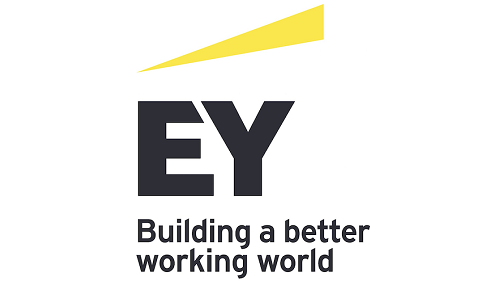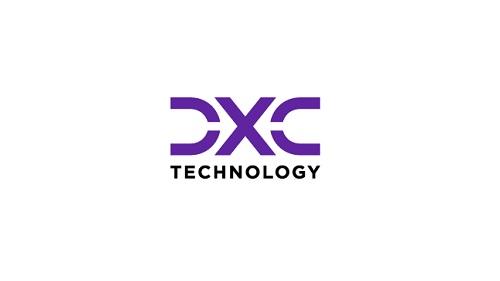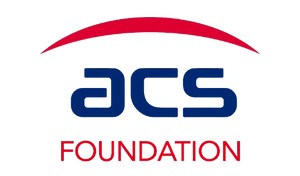Graduate Jobs
Available locations
- Melbourne
- Sydney
Your best begins here - Choose a career that lets you explore your own road to success. Join the NAB Graduate Program in 2026! You'll have the opportunity to do real work, accelerate your development and build networks that last a lifetime.
Graduate Jobs
Melbourne - CBD and Inner Suburbs, AU
Hires applicants with degrees in
- Cyber Security
- Information Technology
Gain real work experience and exposure across different Technology areas. Work on real world problems and projects that impact our customers. Be supported by buddies and mentors, have access to senior leaders and technical specialists, with a permanent role guaranteed at the end of program.
Graduate Jobs
Sydney
Hires applicants with degrees in
- Computer Science
- Engineering Software
- Information Systems
- Information Technology
- Telecommunications
Embark on your personal journey of innovation while positioning yourself for long-term career opportunity in Australia’s digital infrastructure industry by joining our Graduate Program commencing February 2025.
Graduate Jobs
Sydney
Hires applicants with degrees in
- Computer Science
- Engineering Software
- Information Systems
- Information Technology
We are looking for talented individuals to join us in 2025. As a graduate, you will get unparalleled opportunities for you to kickstart your career, pursue bold ideas and explore limitless growth opportunities. Co-create a future driven by your inspiration with TikTok.
Graduate Jobs
Sydney
Hires applicants with degrees in
- Computer Science
- Engineering Software
- Information Systems
- Information Technology
As a graduate, you will get unparalleled opportunities for you to kickstart your career, pursue bold ideas and explore limitless growth opportunities.
Graduate Jobs
Sydney
Hires applicants with degrees in
- Computer Science
- Engineering Software
- Information Systems
- Information Technology
Video Cloud Infra team, facing business experience and cost, builds a competitive video transmission network and multimedia processing platform, builds data foundation and analysis capabilities, drives product refined operation, reduces costs and increases efficiency.
Graduate Jobs
Sydney
Hires applicants with degrees in
- Computer Science
- Engineering Software
- Information Systems
- Information Technology
As a graduate, you will get unparalleled opportunities for you to kickstart your career, pursue bold ideas and explore limitless growth opportunities.
Graduate Jobs
Sydney
Hires applicants with degrees in
- Computer Science
- Engineering Software
- Information Systems
- Information Technology
As a graduate, you will get unparalleled opportunities for you to kickstart your career, pursue bold ideas and explore limitless growth opportunities.
Graduate Jobs
Sydney
Hires applicants with degrees in
- Computer Science
- Engineering Software
- Information Systems
- Information Technology
As a graduate, you will get unparalleled opportunities for you to kickstart your career, pursue bold ideas and explore limitless growth opportunities.
Graduate Jobs
Sydney
Hires applicants with degrees in
- Computer Science
- Cyber Security
- Information Technology
Asontu, a Sydney-based cyber security firm is seeking graduates with a passion for cyber security and consulting to join their rapidly growing team. Competitive pay, flexible work, and opportunities for growth.
Graduate Jobs
Available locations
- North Sydney
- Sydney
Hires applicants with degrees in
- Computer Science
- Information Systems
- Information Technology
An IT Consultancy Firm is looking for an experienced Support Engineer to join their team based in North Sydney, NSW.
Graduate Jobs
Melbourne
Hires applicants with degrees in
- Computer Science
- Engineering Software
- Information Technology
Join our growing team & develop innovative end-to-end data management solutions. Flexible hours, potential equity ownership. Working from home with the opportunity to contribute across a range of ProofSafe's web tools and mobile application.
Graduate Jobs
Available locations
- New South Wales
- Sydney
Hires applicants with degrees in
- Computer Science
- Cyber Security
- Engineering Software
- Information Systems
- Information Technology
As Canva scales change continues to be part of our DNA. But we like to think that's all part of the fun. So this will give you the flavour of the type of things you'll be working on when you start, but this will likely evolve.
Graduate Jobs
Melbourne
Hires applicants with degrees in
- Engineering Software
- Information Systems
- Information Technology
Register your interest now for our University of Melbourne 2025 IT Emerging Talent Program!
Graduate Jobs
Sydney
Hires applicants with degrees in
- Computer Science
- Engineering Software
- Information Technology
You’ll work on innovative technologies with experienced engineers on the development, delivery, support, and enhancements of our trading systems and infrastructure.
Graduate Jobs
Sydney
Hires applicants with degrees in
- Computer Science
- Cyber Security
- Engineering Software
- Information Systems
- Information Technology
Forge a meaningful career path with the world's leading specialist in food and agribusiness banking. Rabo Graduate Program offers you comprehensive learning and development, with opportunities for both international and domestic travel!
Graduate Jobs
Available locations
- Adelaide
- Brisbane
- Canberra
- Melbourne
- Perth
- Sydney
Hires applicants with degrees in
- Information Systems
- Information Technology
Join us full-time as an IT/information system graduate and let's shape your bright future together. We're committed to nurturing your career with continuous support, learning opportunities, and dynamic experiences.
Graduate Jobs
Available locations
- Adelaide
- Brisbane
- Canberra
- Melbourne
- Perth
- Sydney
Hires applicants with degrees in
- Computer Science
- Information Technology
Join us full-time as a design computing graduate and let's shape your bright future together. We're committed to nurturing your career with continuous support, learning opportunities, and dynamic experiences.
Graduate Jobs
Sydney
Hires applicants with degrees in
- Information Systems
- Information Technology
Create your tomorrow with the 2025 AMP Technology Graduate Program. Complete a two-year rotational program with bespoke professional development program and a wide support network.
Generalist Jobs
Generalist jobs accept a wide range of disciplines including Information Technology
Graduate Jobs
Sydney
Hires applicants with degrees in
- Computer Science
- Engineering
- Engineering Software
- Information Systems
- Information Technology
With the continuous efforts of our trust and safety platform team, TikTok can provide the best user experience and bring joy to everyone in the world.
Information and Communications Technology (ICT) Graduate Jobs and Opportunities
What is the difference between IT and ICT?
Information and communications technology (ICT) is an extremely large and rapidly growing industry which has penetrated all facets of public and private life. ICT encompasses computer technology (hardware and software), networks, telephone communications and other forms of broadcast media. Information technology (IT) and (ICT) are often used interchangeably however ICT is a broader term which includes IT as part of a wider operative and communications industry. This jobs guide focuses on the IT side of ICT, however increasingly as telephone computer and broadcasting communications are becoming integrated online; IT professionals require more knowledge and familiarity with different communications media.
What do you need to get a job in this industry?
Areas of ICT and IT Study
Because of the massive size and complexity of the ICT industry, there are a lot of options for higher education. A university’s faculty of Computer Science will usually offer multiple bachelor’s degrees in IT, Information Systems (IS), Computer Science and Software Engineering. It is also possible to study IT and communications technology at the major or minor level as part of a Commerce, Engineering or Science degree. Many different specialisations of study are available, reflecting the multitude of specialised jobs available in this extremely large industry. Some business study is an advantage since employers look for candidates with commercial understanding. It is also possible to study ICT at TAFE level.
Job descriptions and titles are not standardised, and the role of operatives within this field is fluid depending on organisational size and business context. Nevertheless, the following list explores some of the most common jobs found in the industry: -
- Applications developer
“App” developers program applications to fulfil sets of software requirements. The job involves interpreting the software requirements, designing, coding, testing, implementing and maintaining the programs. Unlike systems developers, who create the programs upon which the computer functions (such as Windows or IOS and Android for mobile), application developers write programs that work across one or more of these systems. Application developers are usually specialists in a particular field of development, such as mobile apps or accounting software. - Business Analyst
Business Analysts are the connection point between the business and the IT department. An IT Business Analyst will often work on projects within IT after a request from the business (outside of the IT department) has been approved for an application or a feature request to an already existing application is made. Business Analysts need to have great communication skills and people management skills as they will deal with a wide range of stakeholders. - Games developer
Games developers help to create and produce games on a variety of devices, from mobile apps to online flash games and console games (to name a few). The games industry is lucrative and expanding, with many kinds of games reaching mass and niche audiences. Given the huge complexity and quality of many games, most games developers specialise in a particular skill, like network programming, 3D modelling, special effects or quality assurance testing. Games development often requires huge teams of developers. - Database administrator (DBA)
Database administrators ensure that the data inside a database remains consistent, defined, secure, recoverable and concurrently accessible to users across the functions of a business in a form relevant to their needs. They may also be involved in the development and troubleshooting of the database. In addition, database administrators should be experts in database management systems (DBMSs). - Information systems manager
Information systems managers (otherwise known as functional managers and service delivery managers) purchase, install and back up computer systems in an organisation. Since most of the failures for information systems occur due to poor planning, strategic fit and employee acceptance, the information systems manager may have some responsibility for strategic planning and adherence to quality standards. - Geographical information systems (GIS) officer
GIS officers use GIS systems to collect, store, manipulate, present and analyse geographical information, for the use of commercial and government organisations. They help organisations deliver services and products across many sectors, from defence, government, energy and transport to agriculture and consumables. - IT consultant
IT consultants are increasingly important to many businesses which “outsource” their technology problems. Their job is to advice clients on how to increase the efficiency and effectiveness of their information technology systems. They may be involved in strategic guidance, selection and procurement and user training. In big corporations with many employees and complex information systems to install (such as an ERP system), user acceptance and training is difficult to achieve, unless it is guided by an outside authority without vested interest in company politics. Consultants have a valuable role to play here too. - IT sales professional
IT sales professionals engage in pre-sale advisory and education, negotiating and conducting the sale, post-sale technical and user support and customer management. - IT technical support officer
Monitoring and maintaining an organisation’s computer systems and networks is the essence of an IT technical support officer however the job may go by a variety of other names such as “help desk manager” or “maintenance engineer”. Their services are essential to many business entities, which are increasingly reliant on computer technology. They can be permanently employed by the company, or hired on short-term “outsourcing” contracts. - Multimedia programmer
Multimedia programmers are responsible for the writing, implementation, testing and debugging of multimedia computer programs and websites. Often multimedia programming can form part of the duties of a web developer, games developer, app developer or software engineer. - Mobile Developers
Mobile developers have become increasing more popular in the mobile app industry, an industry that barely existed before Apple released the App store in 2008. Mobile app developers specialise in platforms such as IOS XCode and Android, mobile development is an area where IT graduates can excel as it’s a new area within most large IT departments that experienced IT professionals lag having the skillset. - Multimedia specialist
Multimedia specialists work with multimedia programmers to produce programs, games and websites in a variety of media. Unlike the multimedia programmer, the specialist is responsible for most of the interaction with the designers and clients – their job includes creating a proposal, assembling a development team, authoring the files into a single usable program, testing the program for errors and presenting the final product to the client. - Network engineer
Network engineers install, maintain and support inter-and intra-organisational computer communication networks. Depending on the size of the organisation, the role of a network engineer may very specialised (as part of a large team) or generalised (overlapping with the role of a technical support officer). - Systems analyst
Systems analysts work to improve an organisation’s productivity and efficiency by studying existing business processes and models and designing new or improved IT solutions. - Systems developer
Systems developers work to fulfil business needs through the use of existing and new technologies. Their roles may overlap with those of software engineers, programmers and web developers. They often act on the advice of a systems analyst. - Technical author
Technical authors interpret technology, and explain it in terms that are easy to understand. They are involved in creating such things as user guides, tutorials and online help. Although they primarily communicate in writing, they often use multimedia such as graphics and videos to help explain the technology to users. Although their explanations of software and hardware are essential to the IT industry, technical authors are not confined to it and may work across the board in a variety of sectors – from manufacturing to medical, government and finance to quality assurance, communication and transport. - Testing Engineer
A testing engineer specialises in testing applications that have been built by developers in an organisation. Testers are often thought of as unglamourous roles by graduates, when infact they can be a very lucrative path to quickly excel an IT career. Testing can lead into Business Analyst roles and even Project Management, or a career in testing is one in which you can expect to have a large amount of choice all over the world as all large IT teams hire testing engineers.
Industry Experience
Industry experience is always an advantage to a job candidate, enabling them to develop their skills and prove their capabilities. Increasingly employers seek ICT graduates with previous work experience in the field.
Large ICT organisations like software companies and consultancies offer internships, vacation work and cadetships. Other sectors like finance, manufacturing and mining also offer industry experience in their organisations. Despite recent cuts to public service, the Australian Government continues to offer cadetships and work experience in the APS. Despite this, overall the industry sector does not provide enough work experience to meet employer demands. To address this issue the Australian Workforce and Productivity Agency has advised the Australian Computer Society to develop a one-year professional experience program for ICT graduates.
Adaptability to Rapid Technical Change
To stay successful in an industry defined by Moore’s Law and continual technological innovation workers in IT must be adaptable and observant. Strong base skills that are transferrable across different types of technology are a must, and workers should stay aware of the latest changes to the industry and regularly update their knowledge and skills.
Membership of an Industry Body and ACS Certification
The Australian Information Industry Association (AIIA) is the main representative body of the IT industry in Australia. It represents, advocates for and promotes the industry to the government, in order to grow the digital economy and influence public policy. In addition, it provides numerous benefits to its members, including advisory services, contacts in the industry, discounts and market information. Open to all providers of “ICT goods and services across all industry sectors”, the AIIA represents over 400 member organisations, including major corporations and SMEs. Membership is free to employees of these member companies.
Professional certification is an employment advantage. The Australian Computer Society (ACS) has two levels of certification available – Certified Technologist and Certified Professional. Both levels of certification recognise technologically transferrable skills. ACS certification also requires commitment to a code of ethics, a code of practice and yearly continued professional development (CPD).
Macroeconomic Trends and Work Prospects
Information and communications technology has transformed the twenty-first century economy. Computer technology has infiltrated all sections of government, business, education and private life. Our civilisation relies on increasingly complex computers, which have eased business functioning, enabled online networking through instantaneous communication, aided and dramatically increased global enterprise, automated core business processes and provided huge amounts of valuable data for decision making. As a result the ICT market is one of the largest, broadest and fastest growing markets in Australia. As of 2013, 544 000 Australians work in ICT, with the number expected to grow by another 33 000 by 2017. While many of these people work solely in the ICT industry (as consultants, contractors or developers) 60% of the ICT labour market work across such diverse sectors as property, manufacturing, finance, government, communication services and entertainment. Over 90% of organisations hiring ICT workers are classified as small to medium enterprises (SMEs).
As well as possessing a booming local industry, Australia is desirable to many global companies as a testing ground for new and innovative ICT projects, and hence receives a lot of overseas investment. Software development in Australia is relatively low-cost, while the employment market is highly skilled. This has led to some big corporations setting up software development facilities in Australia as part of strategic ICT investment, which swells the employment market.
Currently there is a skills shortage in the ICT market. Ironically, despite the shortage, many companies do not offer graduate positions, believing that most graduates do not possess the skills, business knowledge and communication required for the job. The low ATAR cut-off for many tertiary ICT programs contributes to a situation where many students graduate as poor communicators possessing less than desirable skill levels. In 2012 it was found that companies evaluated 44% of hiring decisions as unsatisfactory. As a result, companies have become much more rigorous in their recruitment process, in order to make sure the people they hire are worth the investment. This has led to a comparatively small proportion of organisations offering graduate opportunities, despite the industry boom. The fields that provide the most graduate employment jobs are IT tech support.
Candidates with strong technological skills, practical experience and good communication are in high demand, while motivational attitudes and cultural fit are also becoming more important to employers. The key to finding work in the industry is building strong, transferrable technological skills, developing an understanding of business, and becoming a fluent communicator.
ICT Graduate Salary Estimates
Graduate salaries in ICT generally fall within the $50-80k range, depending on state and employer. On average, salaries in Sydney, Melbourne, Adelaide and Perth were higher than salaries in Brisbane and Canberra. A different state pattern occurred with graduate IT contractors’ hourly rates – while the nationwide range was from $20-40, the highest hourly rates were in Adelaide, Canberra and Perth.
Role and occupation also affects salary estimates. Consultancy is one of the most lucrative ICT sectors, with some employees earning up to $90k. However finding graduate work with a consultancy firm is very difficult as many do not offer graduate programs, and the few positions open go only to the very best. Web developers also earn well at entry level positions – around $70k. In contrast, graduate technical support officers earn around $45k.
Gender Discrimination in the ICT industry
Gender discrimination is particularly common in the ICT industry, with approximately 25% of women workers suffering from sexism in the workplace. This is partly due to ICT currently being very much a male-dominated industry, with women occupying less that 20% of the workforce. This imbalance is being targeted by educational and industry campaigns designed to raise awareness of job opportunities for women in ICT, so that more women enter the job market. However the current cycle of female under-representation is self-perpetuating, since many employers carry an unconscious gender-bias towards women who do enter the market, leading to a situation where capable and qualified women are not considered for many ICT jobs. Some IT organisations such as ThoughtWorks Consulting are doing their best to rectify this situation by introducing hiring targets. Although some have concerns over using quotas to ensure equal representation, fearing that it will require companies to lower their standards and hire female candidates with less skill, in reality it has not been associated with a drop in productivity and performance. As more women study ICT at university, the industry gains a more even pool of job seekers, reducing the need for hiring targets since women and men perform equally well.
Benefits
Flexible work opportunities, results-driven bonuses and discounts on computer technology are some of the more common benefits of working in the ICT industry.

























